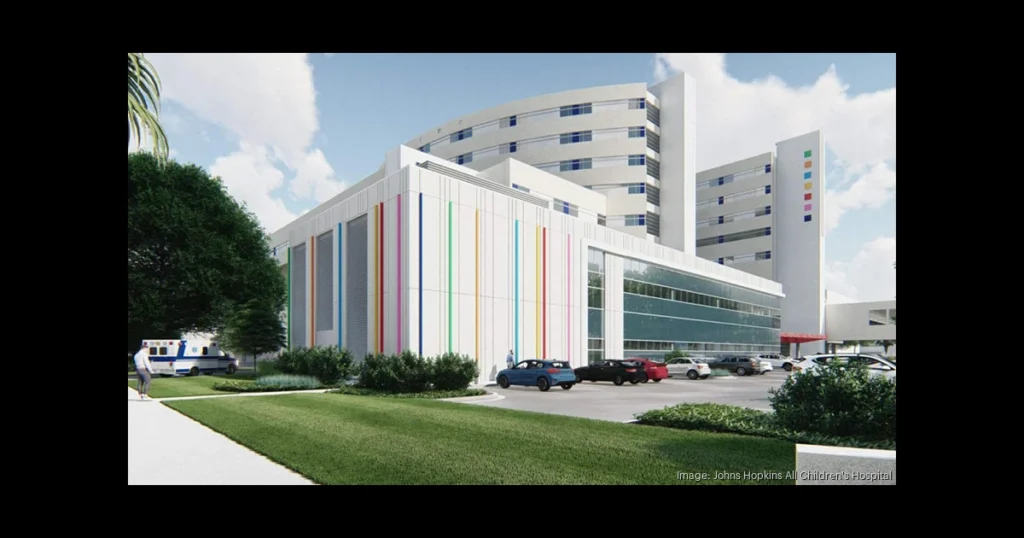st. PETERSBURG, Fla. — Johns Hopkins All Children’s Hospital is entering a pivotal stage with its $62 million expansion project, with construction actively underway at a new facility aimed at increasing the ability to treat the region’s most complex pediatric cases.
The 28,000-square-foot expansion (part of the multi-year master facility plan) broke the ground earlier this year and is expected to be completed by July 2026. The project will add state-of-the-art surgical rooms, expand emergency care, and replace the aging infrastructure that is critical to hospital day-to-day operations.
“We expect to get final permits at any time,” said Justin Olsen, Johns Hopkins Chief Operating Officer. “Now we are actively working on the foundation and are clearing the site.”
Ranking Florida’s Top Children’s Hospital in US News & World Report, Johns Hopkins All Children’s deals with increasingly complex cases, particularly in surgery. The new operating room is the largest on campus and is designed for advanced procedures such as neurosurgery, orthopedic reconstruction and advanced airway treatment.
“We see more complicated cases where the room requires additional experts and equipment,” Olsen said. “This expansion gives us the space and design to free up current OR for lower vision procedures while addressing these challenges.”
The key features of the extension are:

New emergency testing room and surgical suite third in-house MRI machine, remote trailer transfer intervention radiation research lab and adjust new on-site steam energy plant for anesthesia adjustment, ensuring continuous operation in harsh weather to ensure uninterrupted sterilization and statistical lab
Called the “Kitchen Sink Project” by Olsen, this expansion brings multiple important functions under a single roof. The hospital in St. Petersburg’s innovation district is part of a wider surge in health investments in the region, including Orlando Health Bayfront’s “Institute Square” development.
While Johns Hopkins continues to expand its footprint across the region, including the 114-acre property purchased at Wesley Chapel, Olsen said the St. Petersburg campus will remain the hub of most advanced services.
“The care provided in one setting improves quality,” Olsen said. “This project is a commitment to ensuring that the most complex services remain centralized in the safest and most efficient way possible in our area.”


